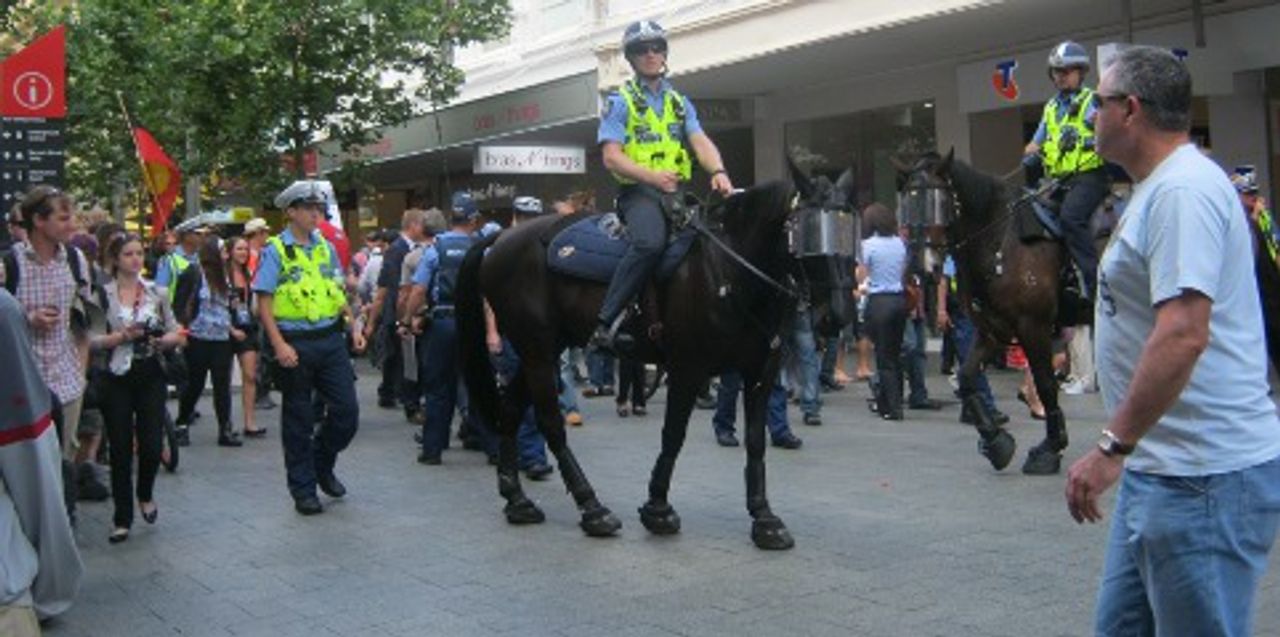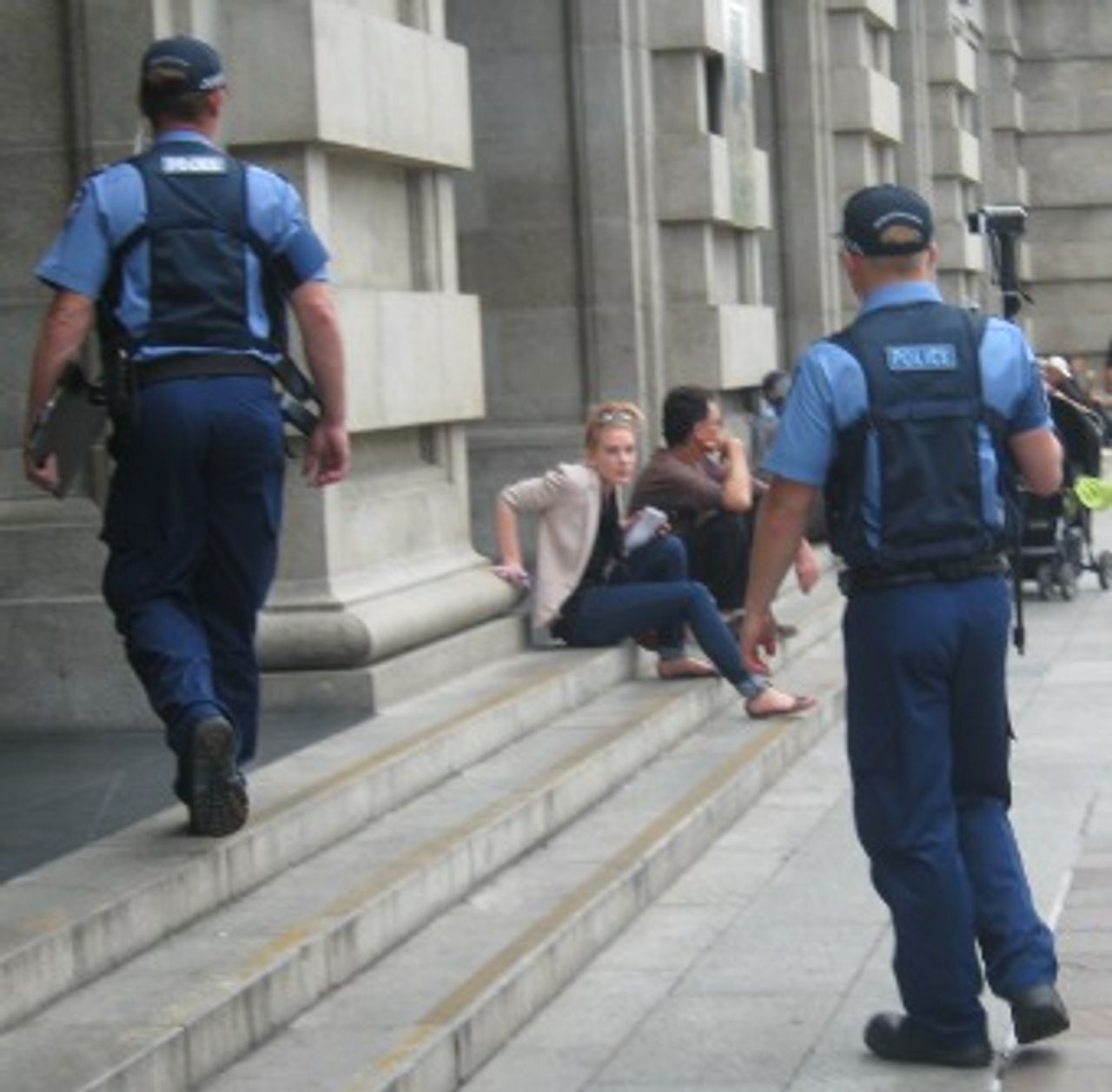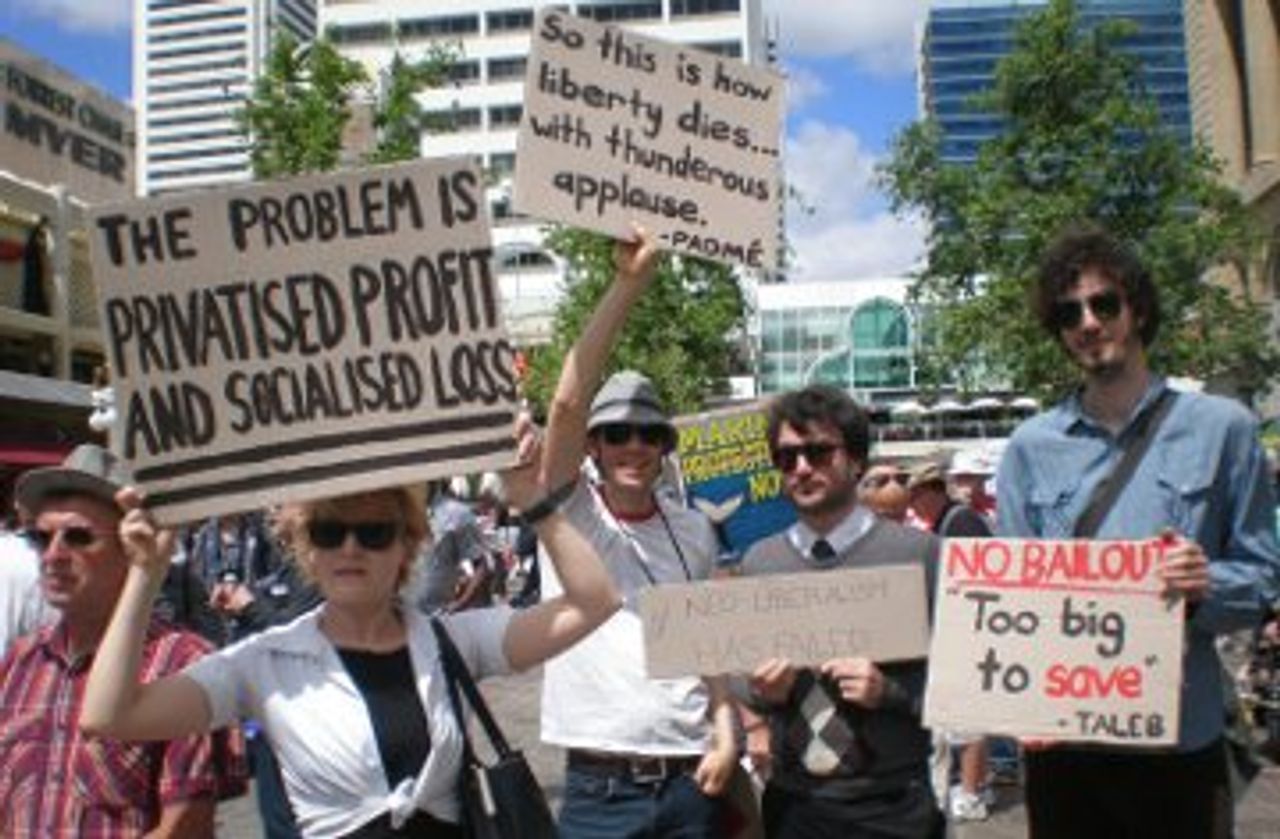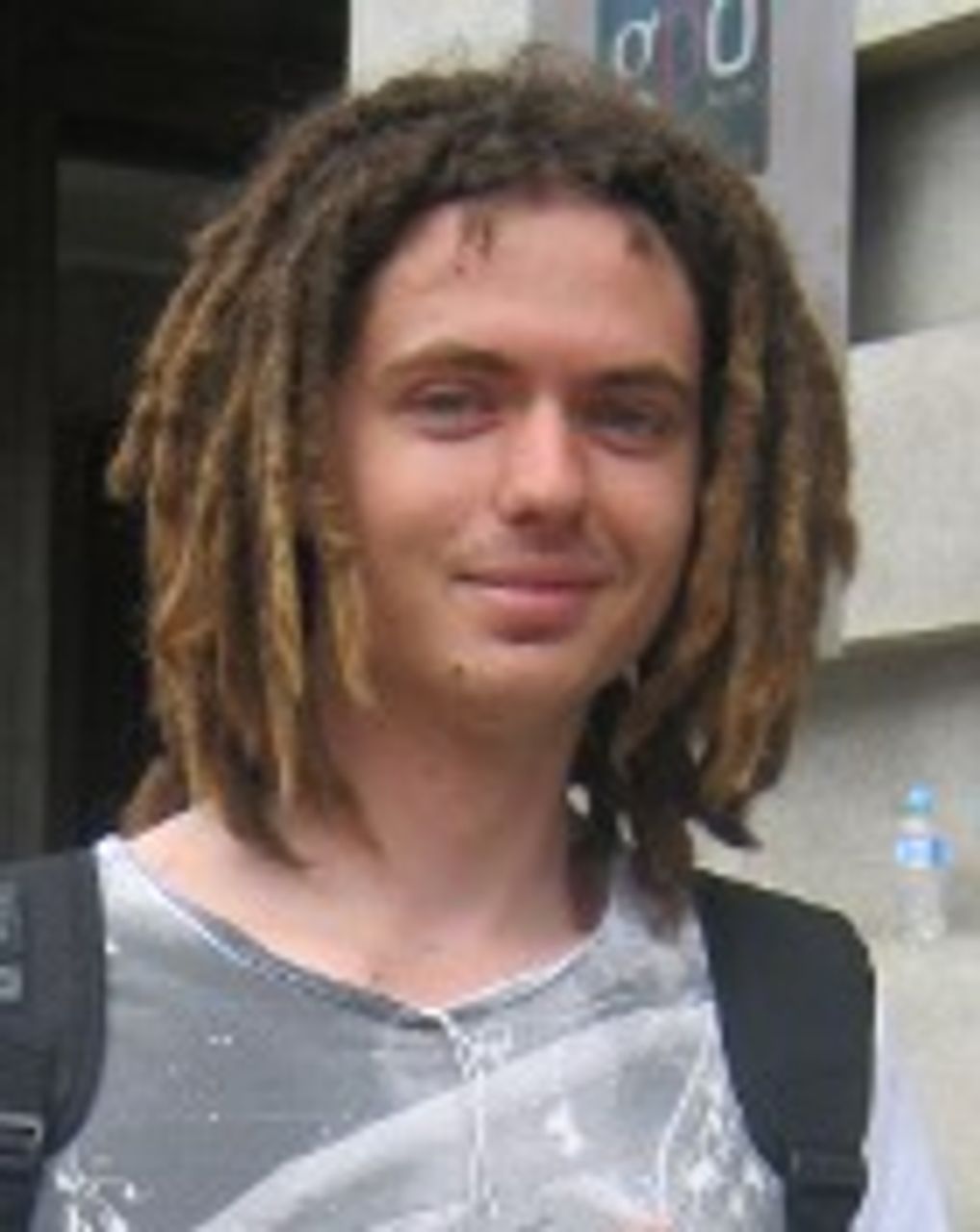Some 500 people marched in Perth, Western Australia, on Saturday to demonstrate over a range of issues as the Commonwealth Heads of Government Meeting (CHOGM) took place in the city. Occupy Perth, formed in response to the anti-Wall Street protests in the US against social inequality and corporate power, merged with the CHOGM demonstration, intending to begin an occupation following it.
The CHOGM Action network, which organised Saturday’s demonstration, was made up of a diverse range of protest and single issue groups, including anti-nuclear campaigners, local environmental organisations, and others based around Aboriginal, refugee, and gay marriage issues. Other protesters carried banners and placards denouncing the governments of specific Commonwealth states over human rights abuses, such as Sri Lanka, Zimbabwe and Malaysia.
 Police monitoring the protest in Perth
Police monitoring the protest in Perth
The march took place in the face of an intimidating police presence. Police walked at the front and rear of the protest, with mounted police and other uniformed officers watching from the sides. Officers wearing vests labelled “Evidence Gathering Unit” provocatively videoed participants. A steel fence had been erected to block demonstrators from proceeding along the road to where the CHOGM summit was taking place. A line of 30 riot police was deployed about 100 metres behind the barrier.
 Police filming protesters
Police filming protestersThe protest proceeded to Forrest Chase, the inner city pedestrian mall that Occupy Perth had nominated as the site for an occupation during the CHOGM events.
Occupy protesters were told by police at Forrest Chase that they had to dismantle the tents they had erected, and that they would be physically removed if they remained at the site. A group of approximately 30 people nevertheless camped overnight in the mall on Saturday and Sunday. They abandoned the occupation on Monday evening when 20 police converged on them and threatened that their camping gear would be confiscated.
The state intimidation of the small protest in Perth serves only to underscore the nervousness that the Occupy protests have provoked in ruling circles. Well aware that there is widespread anger over social inequality, governments at every level fear that the Occupy movement could provide an impetus to broader expressions of working class opposition.
The CHOGM summit was accompanied by far-reaching police-state measures. The Western Australian state Liberal government of Colin Barnett and the federal Labor government of Prime Minister Julia Gillard combined forces to flood Perth with thousands of police and hundreds of troops. Military helicopters and jets were put in the air over the city.
Entire areas of central Perth were designated “Core Security Areas” (CSA) in which police had sweeping search and arrest powers. Prior to CHOGM, a number of people were served with notices that they were “excluded persons” and prohibited from entering any CSA under pain of immediate arrest (see: “Massive security for Commonwealth meeting in Western Australia”).
At Saturday’s demonstration, a representative of the Black Deaths in Custody organisation told the audience that scores of homeless Aborigines had been “swept away”, or forcibly removed from the city, until the summit was over.
World Socialist Web Site correspondents spoke with some of the young people participating in the protest.
 Paul (second from right)
Paul (second from right)Paul, who works in IT and research, said: “ I am here to protest human rights abuses in places like Sri Lanka. People were bombed by the army so no wonder refugees try to come to Australia to escape this violence.”
Paul and his friend had banners referring to the banks. He commented: “We wanted to say something about the inequality in the world. Lots of my friends are struggling to get housing. In Australia, it’s not as bad yet as other parts of the world, but it’s getting worse.” Asked if he thought the Occupy Wall Street movement was in any danger of being channelled into supporting Obama and the Democrats, Paul said: “Yes, the two party system is definitely the problem, as it is here.”
Isabelle, a young woman, expressed anger that the police were walking through the crowd filming protestors. “It is intimidating to have this big police presence”, she said. “The banks rip us off while we need education and services. These new police stop-and-search laws are wrong. They should not have the right to stop people if they have done nothing wrong. Our lifestyle is going to become like 1929, and we have to act now before people are too hungry to think about politics.”
 Harley
HarleyHarley, a first year university student, saw the protest advertised on Facebook and decided to attend. “I believe this protest and Occupy Perth is needed,” he explained. “We have to get rid of inequality and end corporate greed. If we had taken the right steps in the past we could be in a better world. We need to educate the next generation to get equality and good resource management. I would like it all to go peacefully but it looks like the police may try to shut it down.”
Brent, a young psychology student, commented: “I want to make a difference and protest may not be enough, but it does create awareness. So what is the next step? That is the million dollar question. I do think its capitalism’s fault and we have to think more deeply and not just accept the mainstream media.”
